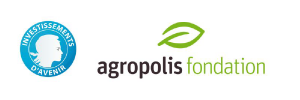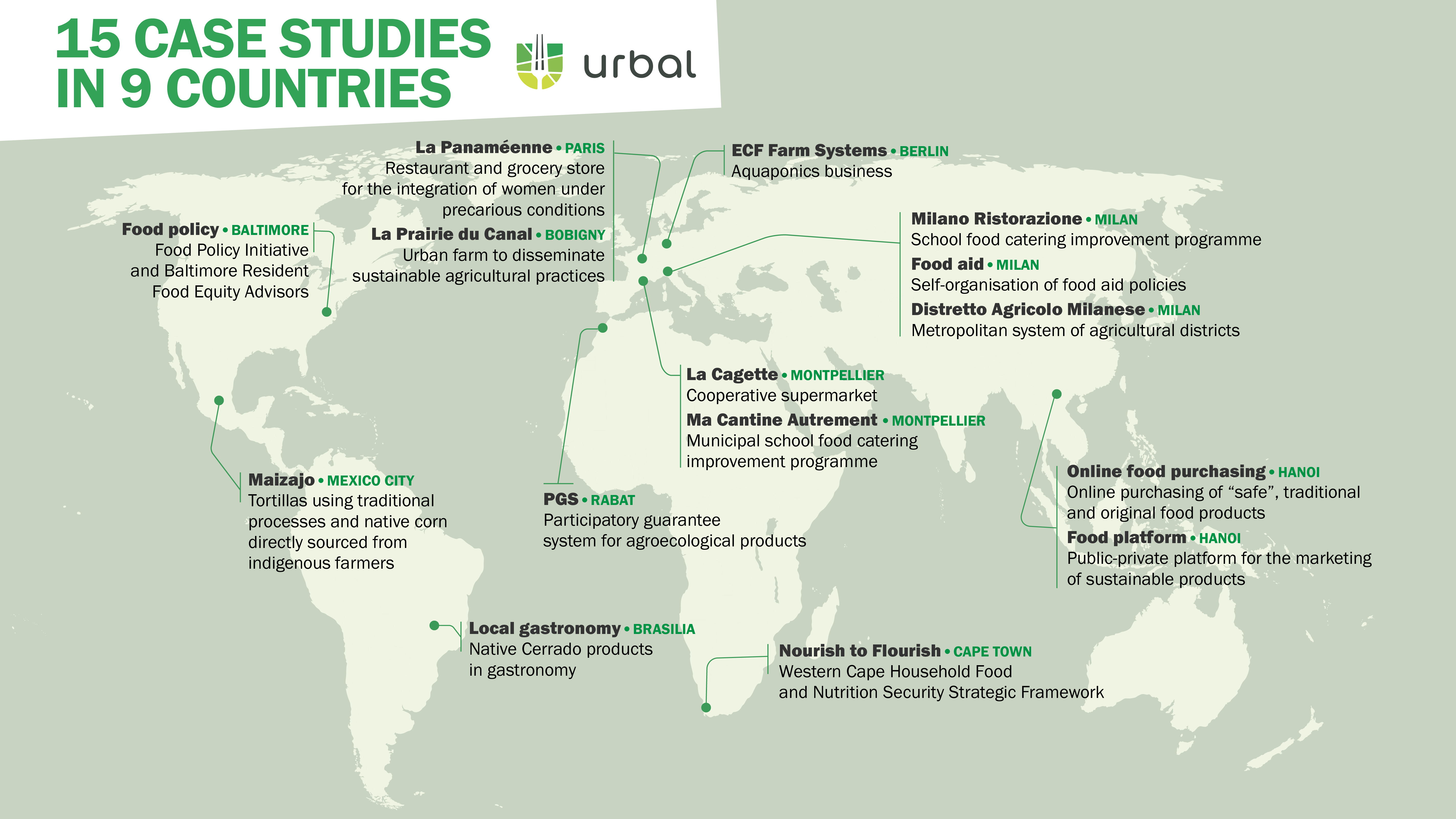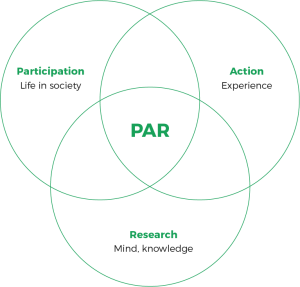The project
URBAL is supported by Agropolis Foundation under the reference ID 1507-000 “Investments of the future” program
(labex Agro: ANR-10-LABX-0001-01 Fondazione Cariplo and Daniel and Nina Carasso Foundation)



rbal: Urban-Driven Innovations for Sustainable Food Systems is an international project that uses participatory research in eight cities to develop and test a holistic methodology to map the impact pathways that go from urban innovations to all dimension of sustainability of food systems.
Mapping impact pathways will allow Urbal to develop a methodology that describes how innovations take place in terms of knowledge and material flows, networks, challenges and opportunities. Some impacts of innovations are obvious, but others are indirect, mediated, incidental, retroactive, unexpected or delayed. The Urbal mapping of innovation impact pathways aims to depict this complexity. A sustainability framework is at the core of our research approach with environmental, socio-cultural, food security, and nutrition and governance considerations central to our research. We are interested in innovations that include two or more of these sustainability dimensions.
Urbal’s goal is to develop the methodology as a decision-making tool for practitioners and policymakers as a way to provide a common overview of innovation impact pathways and how they evolve. We will do this by engaging practitioners, researchers, and other stakeholders in participatory workshops to make impact pathways apparent and to co-produce knowledge about how practitioners use innovations to bring about change.
Urbal Food Innovation Labs (UFILs)

The UFILs are the centrepiece of our research project as the sites where the methodology will be tested. The UFILs are located in eight cities including both the Global South and Global North: Baltimore, Brasilia, Berlin, Cape Town, Hanoi, Milan, Montpellier and Rabat.
The UFIL were selected based on three guiding research themes; in each case, specific questions will be addressed:
- WP2) What is the impact of the innovation on consumers’ food and eating practices?
- WP3) Do value chain innovations address sustainability consistently at the different stages of the food cycle? How can we understand and compare short versus long supply chains relative to environmental, social and economic objectives? Can high-technology efficiency be compatible with social inclusiveness? And to what extent can new demands in the food system, e.g. catering, be conducive to structural sustainability changes?
- WP4) To what extent are various institutional actors needed for upscaling different urban-driven innovations? And, as a consequence, what are the implications for institutional re-designing that adopts a multilevel governance perspective?
UFIL leaders will work with WP leader(s) to establish a reporting schedule and will report on all findings directly to the WP leader. They will also provide input to the Urbal project as a whole.
UFIL leaders will:
- Identify and engage key actors linked to their innovation and develop the UFIL team. Based on direction from the June 2018 meeting, WP1 will provide guidance to WP2, 3 and 4 on building these groups (team and larger workshop group).;
- Benchmark the innovation based on the literature;
- Instruct their UFIL team on the use of the methodology;
- Ensure participants in the research in their UFIL conduct research according to the Urbal project goals;
- With the team, test the innovation mapping methodology. UFIL leaders will guide the production of research outputs for their UFIL and provide WP leaders with case study information, research results, and participant profiles as requested
Sustainable Food Systems
GOVERNANCE

accountability
participation
transparency
FOOD SECURITY

access
quality
availability
regularity
ENVIRONMENT

pollution
biodiversity
non-renowable resources
NUTRITION

care
health
physical activity
SOCIAL-CULTURAL

inequality
social cohesion
confidence
identity and culture
ECONOMIC

resilience
equity
decent jobs
Description of Participatory Research
We are committed to actively engaging with stakeholders throughout the project using a Participatory Action Research (PAR) approach. We will apply PAR to every facet of the Urbal project. Adopting PAR means we will work in collaboration with stakeholders to cocreate and enable action-oriented findings and tools that can be taken up in our communities of practice. We will build on the experience and insights of everyone taking part in the research, including community practitioners from civil society and private business, policy-makers, and scientific advisors, to develop innovation impact mapping methodologies that reflect and build from realities in society.



